There are, and have been, a number of individuals who over the years have made tremendous contributions to their own Guilds and thus directly or indirectly to the fortunes of the Association. It is felt right and proper that due recognition should be given to these people and articles about them will be placed here, from time to time. They will be arranged in alphabetical order, according to this index;-
1. Alan T Alderson FCA
2. Alan W Berry MA
3. Raymond George Holl MBE CEng MIEE
4. Fred Ingram MBE
5. David Moor
6. Joseph (Joe) William Norman Petty MA (Cantab)
7. John H Speake
8. Robert (Robin) F Walker MA LLM
Alan Thompson Alderson FCA
(1916 - 2016)
Hon. Treasurer Freemen of England 1966 - 1986
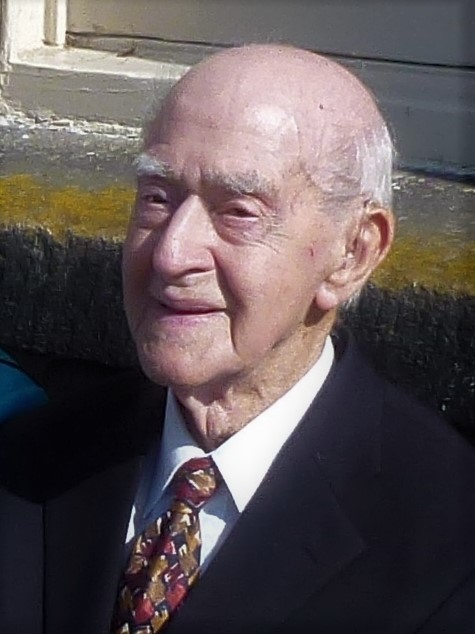
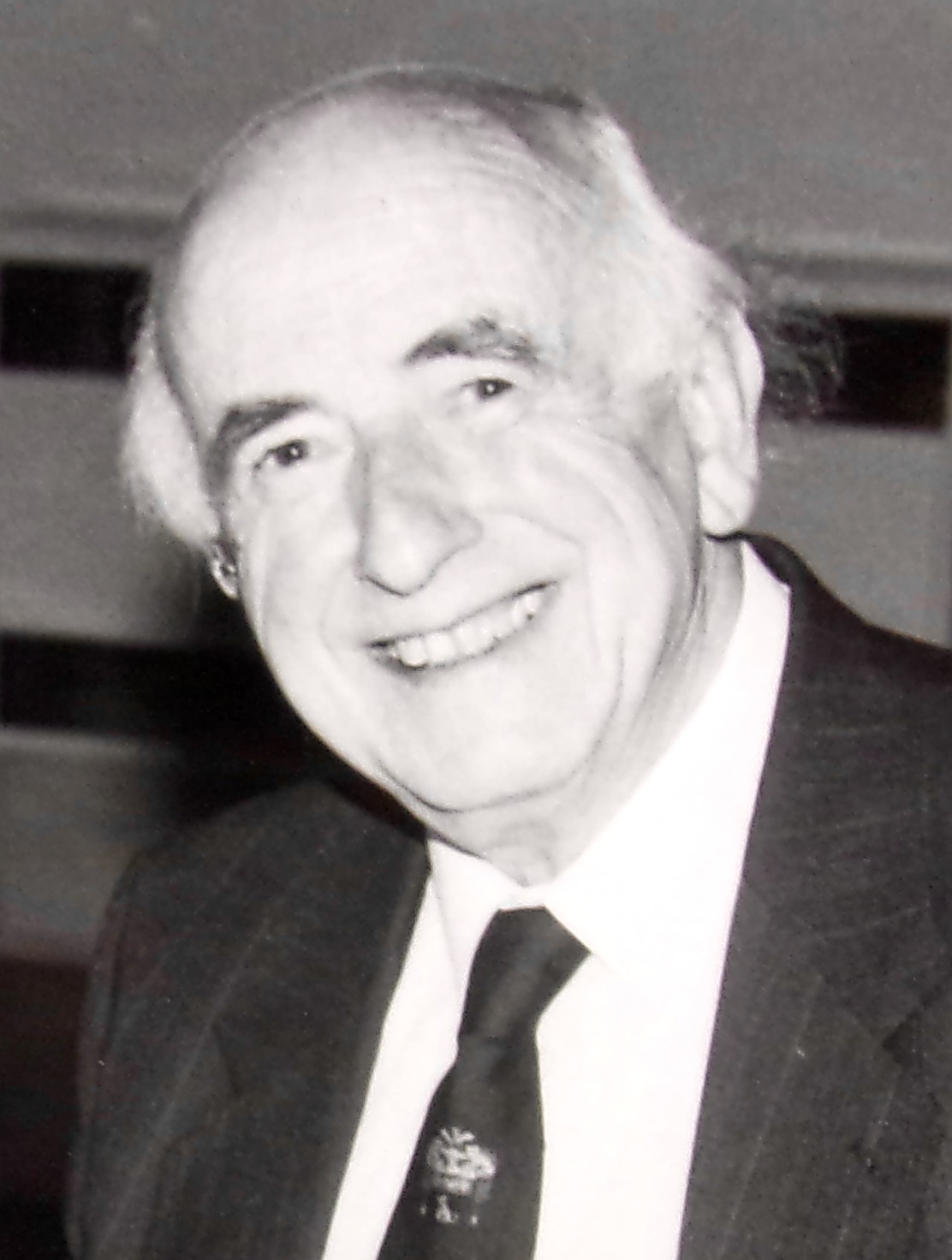
The erudite Mr Allan Walter Berry researched and accurately produced a huge amount of material relating to the history of Sudbury in Suffolk and particularly of the freemen of the old borough town. Without doubt he was a driving force in the reinstatement of a ‘Freemen’s Society’ and founder of the Freemen’s Trust.
A quiet and unassuming gentleman, he was always on-hand to advise or to correct any documentation required by the Freemen. Most of his working life was spent in Colchester, with frequent trips into Sudbury. He was a local government Careers Officer working with school leavers in northeast Essex until his retirement in 1984. For 60 years he was married to Margaret until she died in 2010.
With the prolific publications of pamphlets and books I would doubt that anyone would know more on the subject of Sudbury freemen and that I with many others have regarded ourselves privileged to avail upon his knowledge.
At a meeting of freemen, attended by Harry Ward [founder of ‘Freemen in England’] at Sudbury 22nd September 1971, it was decided to revive the ’Freemen’s Protection Society’ created in the 1890’s and a committee of freemen was formed. At the Quinquenniel meeting of the Sudbury freemen in 1973, the Freemen’s Protection Society was reorganised under the new name “Sudbury Freemen’s Society”. This coincided with the new district authority of Babergh with offices in Hadleigh. The 1972 Local Government Act had abolished the Borough status and put responsibility for admissions of freemen to the Chairman of Babergh District Council.
The disappearance of the Borough status of Sudbury in 1974 left the freemen as sole survivors of the original Corporation that had seen arise centuries before from the manor whose lands their trustees still preserve. Every freeman has a right to graze two beasts and every widow/er has a right to graze one beast on the ‘town’ lands. At the first Admissions Court, the District of Babergh [January 1975] announced new interpretations of ancient custom – for a freeman, not born within the boundary, to be admitted. Also – that male grandchildren descendant of a freeman may be admitted. Apprentices to a freeman who has served the present customary terms will be admitted (the seven year term laid down centuries ago is legally abolished).
It was in 1975 that I wrote to the Sudbury Town Clerk to enquire of my family records within the ‘Cocket Books’. After a little delay I received a letter from the recently appointed town archivist, Mr Michael Hills who informed me that the current Cocket and Freemen’s Roll was being held by Mr Allan Berry at Colchester and that as an expert, Mr Berry “would be interested to hear from you”.
From that now distant time ago, correspondence with Allan Berry gathered momentum. He very quickly associated my family with the ‘Blacksmiths of Wiggan End’ (East Street). He also put me in touch with resident freemen, family members. In 1978, Allan encouraged me to seek admission to the freedom of Sudbury and to enlist assistance from Harry Ward of ‘Freemen in England’.
At that time the Sudbury Freemen’s Society was described by Allan as “a rather theoretical body, consisting solely of the freemen, who meet as a body once every five years, to elect two trustees”. They had constituted themselves in order to take over the funds lying in the bank since 1898.
It would clearly appear, from the many transcripts, that the greater part of most activities concerning the Sudbury Freemen were instigated by Allan Berry and the then Clerk, Mr Guy Cook of Bures Road, Great Cornard, with some assistance from John Grimwood who was elected Chairman of the Society.
In June 1985, Mr Michael Wheeler, described by Allan as “one of the younger generations of freemen was elected as a Representative Trustee of the Common Lands and he together with Mr Roy Alston had also been elected to the Committee of the Freemen’s Society”. It was at that time that the negotiations began for the sale of ‘Harp Close Meadow’ to the Regional Health Authority, as the site of a new hospital!
When I was elected in September 1990 to Deputy President of the national body of Freemen of England and Wales, Allan enthusiastically published his compliments in the newspaper, adding that “the Sudbury Freemen would bask in the reflected glory”! It was during my five years in the post that we enlisted the assistance of Charles Sparrow QC, the Honorary Counsel of the national body, to bring democracy to the freedom of Sudbury. With Allan’s researches into past precedents we were able to provide the means to admit women into the freedom of Sudbury (13th October 1992).
Later, in 1993, we had a new Society Chairman when Tony Wheeler took over from the long serving John Grimwood. His relative Simonie Prior then succeeded him in 1999 and at the Quinquenniel Meeting in 2009; the presently elected Chairman is Mr Michael J Wheeler, who I had the pleasure of proposing into that role. This activity he now incorporates with his other office as Chairman of the Freemen’s Trust.
In the process of our annual family pilgrimage to Sudbury, from time to time, we would detour at the invitation of the Berrys to Blackheath at Colchester for lunch with Allan and Margaret and wander out over their very pleasant gardens.
Mrs Margaret Berry, Allan’s wife (who sadly died in 2010) was truly a ‘daughter of Sudbury’ she had been a schoolteacher and her shared interest in history complimented Allan’s interests. At Sudbury she had been an associate and friend of my Shelley cousins, Lavinia (Molly) and Dorothy who also taught children in Sudbury. Many years ago, when my daughter Angela was still a child, she accompanied me in place of my wife Kathy, who was elsewhere with our other daughter Caroline, Margaret very kindly entertained Angela on a day-long educational tour of Ipswich. Allan had arranged for he and me to visit the magnificent Suffolk library of Tony Copsey at his lovely mansion ‘Sparrows Nest’, which incidentally was a former family seat of our FEW Counsellor’s family. Margaret took Angela to see Christchurch Mansion (museum) the grand Tudor property once owned by the Viscounts of Hereford and also to see the ‘Ancient House’ otherwise known as ‘Sparrowes House’ yet another property once owned by the Sparrow family (wealthy grocers).
Allan Berry’s family background in Sudbury, where he was born at the dairy in Curde Lane (renamed Weavers Lane) meant that their activities were inextricably linked with the grazing of cattle on the freemen’s meadows. Allan who was studiously inclined had his education at the Grammar School, between 1929 and 1937 that put him in very good stead to become an outstanding academic. Over the many years he has battled on behalf of the Sudbury freemen, working relentlessly with Guy Cook to obtain the best possible outcome for the freemen’s meadows under the Commons Registration Act 1965. On that occasion he also ensured that the Freemen’s grazing rights were properly protected.
In a subsequent threatening situation, when the Highways department were attempting a new by-pass that would cross a part of the meadows, I became involved with some of the ‘pressure’ correspondence and thankfully the whole proposal was eventually dropped. In 1986, following the debacle over the sale of Harp Close Meadow and with various pressures put upon the Freemen by the Charity Commission, Mr Berry founded the Sudbury Freemen’s Trust over which he was Chairman for some time. The Trust has been instrumental in providing much needed assistance to the townspeople in the same customary traditions of the freemen in the past.
The deep affection for the old Borough Town of Sudbury felt by Allan will have been recognised by all who have read his amusing and educational publications. His commitment and contribution to Sudbury and to the Freemen’s Society will be most sorely missed. It will be particularly difficult for me to readjust from my regular habit of consulting over a multitude of matters, knowing he was always ready to provide some advice or reassurance.
Alan Shelley, Freeman of Sudbury, 25th February 2013
POSTSCRIPT:
Mr Allan W. Berry, born at Sudbury 15th June 1919, died 16th February 2013 at the age of 93. The Funeral taking place at Colchester Crematorium 28th February and his ashes are to be laid to rest in Sudbury. Mr Berry is survived by his daughter Margaret and granddaughter Sarah, both Freemen of Sudbury.
Raymond George Holl MBE C.Eng MIEE
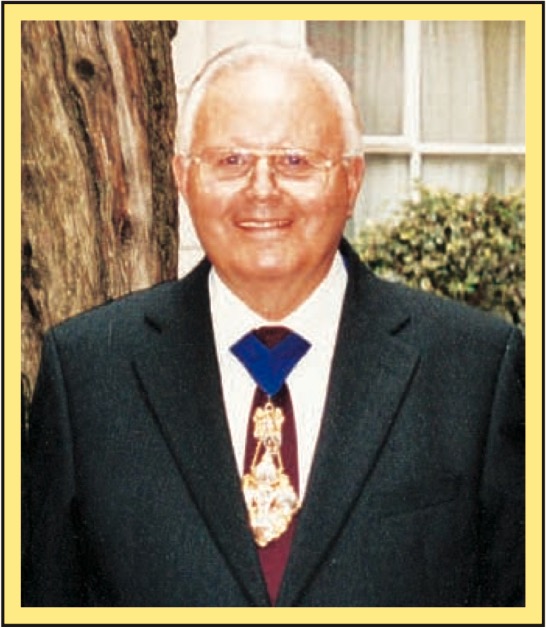
(1930 – 2017)
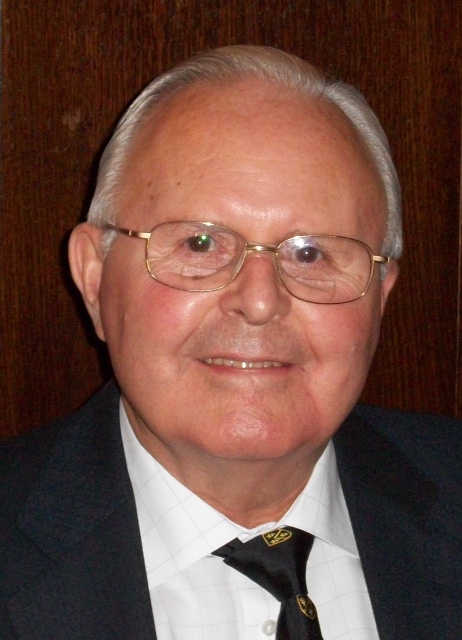 |
Ray’s interest in the freedom gathered further momentum in his retirement when he joined the Court of Freemen of the City of London in1993. It was in the September of that year that Ray indicated an interest in joining my Livery Company, the Worshipful Company of Blacksmiths and into which I had the great pleasure of sponsoring his nomination and brotherhood. Throughout his involvement with the City of London, Ray along with his wife Barbara was an ardent supporter of our company and when in 2003 he became Master of the Guild of the London Freemen he proposed a combined dinner for members of the Court that was held at Tallow Chandlers Hall. |
Fred, (as he always preferred to be known), sadly passed away in February at the grand age of 100 years. He was always pleased to tell his friends that he was born in the City, educated in the City, and his career and later years kept him centrally in the City.
It was a good day for the Freemen, in October 1982, when the then Labour Lord Mayor, Olive Gibbs, broke with tradition and made the Conservative leader her Lord Mayors Childe. Asked why she had done this, Olive’s answer was simply that, although they came from opposite political persuasions, that did not affect friendship or recognition of another’s qualities. Fred was proud to swear his allegiance to our Sovereign and become Lord Mayor of Oxford.
His love of his wife Liz and his family were always uppermost but his love for Oxford people and Oxford buildings and heritage were central in his inner soul. His integrity can never be doubted. Pipe smoking then and a great walker of Oxford streets, where he could meet friends and see how real life was treating them.
Fred’s early life was tough but in a loving household. Fred contracted TB in his childhood and later suffered peritonitis, (burst appendix), he was lucky to survive either but for both it was a near miracle.
Fred did not start primary schooling until nearly seven but shone through and was fortunate after four years to gain a scholarship to The Central Grammar school in Oxford. The Headmaster, a Mr Lambourn, ruled the school with the cane. Fred felt its effect on more than one occasion and often thought it was unfair.
Fred joined the Army on the outbreak of the war and served in Gibraltar & Palestine before being demobbed on medical grounds. When he had recovered, he gained employment at Morris Motors and through his guile and obvious ability, he secured a job as a logistics manager, with wide ranging powers on the secret project for amphibious landing craft being built at Cowley. Fred had access to a motor vehicle with all the petrol he required in order to attend meetings in Birmingham or wherever and could work all the overtime he needed for this vital project. He never let them down.
After the war, stood for election in the Oxford City Council and was elected at the first attempt. Fred now also had a career in a Barristers Office. Fred enjoyed his Council Committee work and soon found himself on nearly forty committees and becoming Chairman of several of the powerful and demanding positions. His MBE decoration came for services to Oxford. This award unfortunately caused resentment amongst his Labour colleagues. After one particular row, he quit the Labour party and walked out.
He was courted by the other parties to join them. Labour tried to attract him back to the fold. He took a call from Robert Maxwell, who offered to make it worth his while to come back to Labour. Fred eventually joined the Conservatives and was soon Lord Mayor in 1973-74.
Fred, and his wife Liz, ran the Pensioners Club in Gloucester Green in their own retirement, usually there six days a week and sometimes seven. It was a total commitment and very popular with all the members, many of whom were younger than Fred. A hot lunch was cooked every day. It was upsetting for them both when the club eventually closed and they retired completely after over twenty years happy service.
He will be remembered by Freemen with affection and respect as a tireless former Chairman. More than once he was heard to remark that, for him, the Freedom of the City meant more than his MBE. May he rest in peace.
This tribute was written by Howard Crapper, Warden for The West, and appeared in Journal 174, Spring 2013.
DAVID MOOR
24th March 1927 - 15th October 2016
CHAIRMAN GUILD OF FREEMEN OF BERWICK 1971-3
ARCHIVIST FREEMEN OF ENGLAND AND WALES, 1966-.
With sadness I report the death of David Moor, a former Chairman of the Guild of Freemen of Berwick-upon-Tweed and the founder Archivist of FEW.
David was born in London in 1927 regularly visiting London Dock with his father who unfortunately was lost in the Second World War. He was an English and Latin Scholar at the City of London School before being evacuated to Marlborough where in addition to academic achievements he was a good shot and keen squash player.
In 1944 he started his career at Wm Denny’ shipyard in Dumbarton and entered Glasgow University, graduating in Naval Architecture before he was 20 and winning the Kirk Memorial Prize. He continued working in the Denny Ship Model Tank for a number of years before taking charge of the Vickers St. Albans Tank. The Denny tank was later added to his responsibilities. He was recognised both nationally and internationally as a leader in his field who contributed significantly to the performance, design and safety of all kinds of sea going vessels. This included many technical papers for which he received wide recognition including Gold Medals from the Royal Institution of Naval Architects and the North East Coast Institute of Engineers and Shipbuilders.
After the decline in British Shipbuilding he rescued many Denny Artefacts which are now in Maritime Museums and wrote a history of shipbuilding in Dumbarton.
He was a Liveryman of the Worshipful Company of Shipwrights in London and served on their court and as Prime Warden. He was also their Honorary Historian and received the Companies Gold Medal of Honour for his work on the Companies treasures and history. He also researched his own family history producing a work called ‘The Turbulent Moors’.
He was a hereditary freeman of Berwick-upon-Tweed with the freedom running back in his family for over 500 years. After taking up his right to the Freedom he became involved in the Berwick Guild of Freemen. In the 1950s/60s he photographed every building within the walls of Berwick creating a unique heritage. Many of his photographs are now housed with other Guild records in the Town Hall. He worked closely with the then Chairman of the Guild, Thomas Evans, in two projects. The first was to provide for new Freemen a short history and description of the Guild. After Mr. Evans died in 1966 he completed this and it was given to all new freemen for many years until an updated version was produced. The second item where he was closely involved was the creation of an Association of Freemen Guilds. There had been discussions on this since 1927, but by the 1960s reorganisation of local government was being considered. It became imperative that Guilds worked together to be able to preserve the freedom. The result was the formation of the Freemen of England in 1966. David was a founder member and was elected Archivist of the new Association. This reflected his keen interest in history and preservation of artefacts and documents. He created a filing system for the archives and acquired an impressive library for FEW, which was passed to subsequent Archivists.
In 1966 David was elected to the Committee of the Berwick Guild where he served for the next ten years. This involved considerable travel from his home in St. Albans. In spite of this difficulty he was elected Chairman of the Berwick-upon-Tweed Corporation (Freemen) Trust in 1970 and Chairman of the Guild in 1971 where he served for two years and made a considerable contribution to the Guild.
Along with many of us who are immersed in the history of our home towns he had a love of books. He was understood to have at least 8,000 books in his home
His funeral took place in The Lady Chapel of St. Albans Cathedral, where he had been married 58 years previously. At the time of his funeral the King James Bell, the death bell, was tolled in Berwick. This is tolled to mark the passing of a senior Guild or senior Council member. The peal of bells and the Town Hall are part of the Trust of which he had been Chairman. The bell will be tolled once more when his ashes are returned for burial in Berwick on what would have been his 90th birthday, 24th March 2017.
David is survived by his wife Valerie, son James and family who will continue the freemen history in the future.
Capt. James Evans, Deputy President FEW, January 2017
Joe Petty was a well-known and highly regarded Freeman of the City of Newcastle upon Tyne, in which he was a member of both the Company of Hostmen and the Company of Scriveners, and a Freeman of the City of London, being a member of the Worshipful Company of Tylers and Bricklayers. He was likewise a long-serving and respected member of our Association, for which he was serving a Chairman of Trustees at the time of his death in June 2010.
Joe’s passing was followed by a well-attended service at the West End Crematorium in Newcastle upon Tyne, with representatives of FEW in the congregation, including the then-President Colin Hardcastle, Past President Alan Robson, the Warden for the North Captain Stephen Healy and Joe’s close and long-time friend Peter Dale. Kind words were said about Joe that day, (and rightly so), but it was not until 8th October 2010, at a memorial service in the Cathedral Church of Saint Nicholas, Newcastle upon Tyne, that we learned how much more there was to this remarkable man. Indeed, Joe’s sons have since conformed that they too discovered things for the first time that day – a testament to the quiet, unassuming and often anonymous way in which Joseph William Norman Petty MA (Cantab) went about adding value to the world and lives of many, many individuals.
The institutions, organisations, businesses and groups of people, into contact with which Joe came during his life were numerous and hugely varied – some predictable, others not so. Nor would you have guessed the extent of his commitment and generosity, much hidden from the public eye.
Joe was a solicitor by trade and had a long and successful legal career, spending almost all of his working life with the well-known law firm Dickinson-Dees. He had always been quite a political man and was elected to Newcastle City Council in the late 1950’s. Not content to just sit in the council chamber however, Joe threw himself into the wider community, becoming an Alderman, later filling the historical role of Sheriff of the City of Newcastle upon Tyne in 1972 and, on a more practical line, chairing the “Watch Committee”, (the title then applied to what is now the Police Authority). I can record personally that Joe watched with some dismay as tensions latterly mounted in both Newcastle upon Tyne and FEW over the Local Democracy, Economic Development and Construction Bill and deeply regretted that a City which had contributed so much to the founding of the Association found itself at odds over issues related to parts of this piece of legislation.
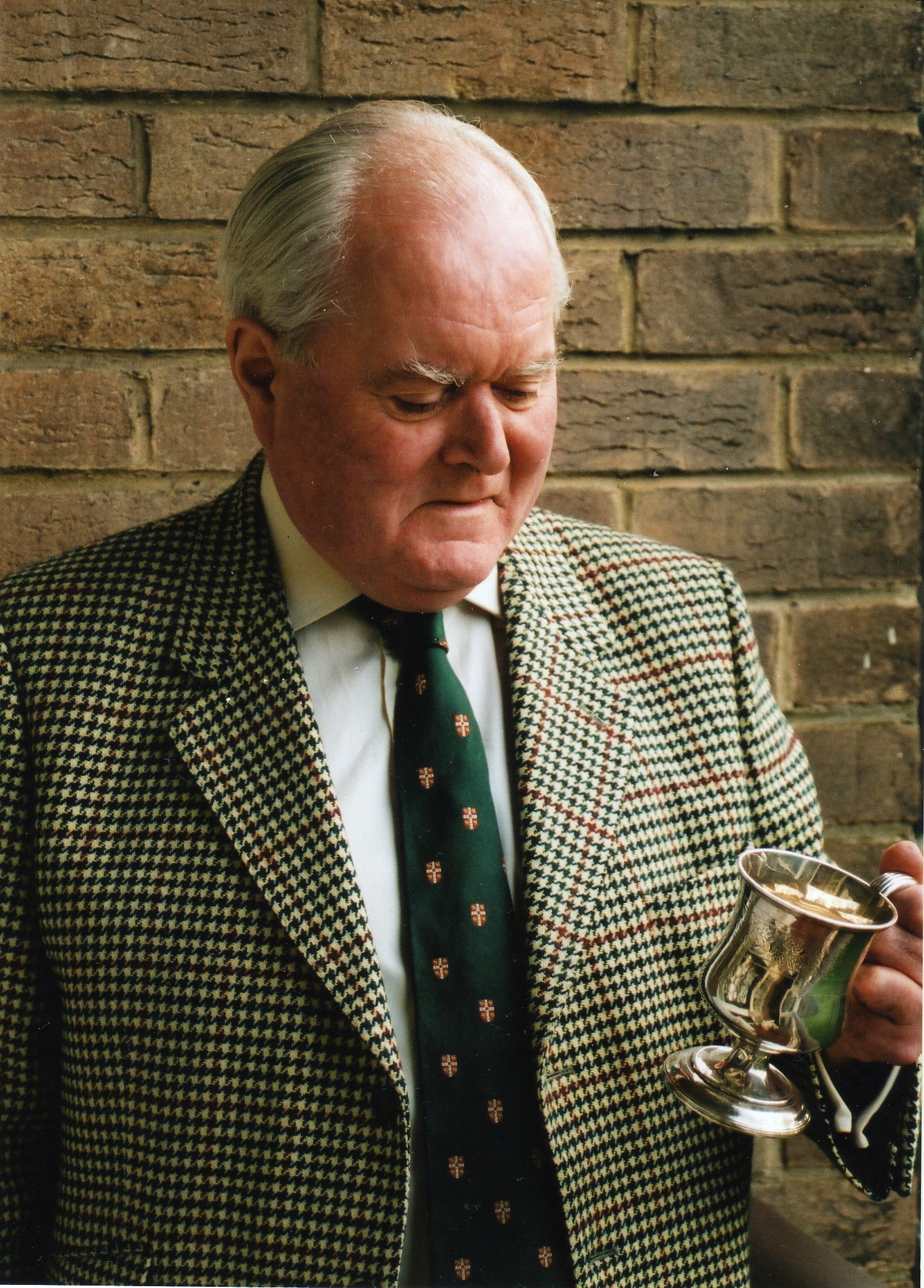 |
Many of us knew of Joe’s love of Newcastle silver - to help hike that famous old suitcase around, so that Joe could decorate the tables at some dinner, or lovingly pull the pieces from its depths one by one during one of his frequent talks, relating not only the provenance and the details of its construction and history, but often some memorable anecdote, was both educational and pleasurable, invariably being the highlight of an evening. Joe’s immaculate flat in Gosforth in Newcastle also contained a huge collection of Wedgewood porcelain, with pieces large and small seemingly occupying every shelf and table. And then there were dogs... Dachshunds to be precise – a huge part of Joe’s life, that of his family, his friends, his neighbours – you get the picture. He kept Dachshunds for over 30 years and was happiest when walking out with a dog at his heels. Typically, in lieu of flowers at the funeral, Joe had asked for donations to the Dog’s Trust. |
Joe attended two colleges in his “second home” – Cambridge, one a venerable and ancient institution and the other a “new” college in that renowned seat of learning. Speaking at the memorial service, the Deputy Director of Development from Gonville and Caius College related how Joe was described in 1952 as possessing “a maturity beyond his years” and was “always remembered for his collar, tie and umbrella”. Continuing, he explained that, after graduating and returning to the north-east, Joe continued to journey south regularly for college events and behind the scenes became an active fund-raiser, privately funding a law scholarship in 1978, as well as two academic prizes. Joe also seemed to have donated quite a sizeable portion of that college’s silver collection, including a valuable Georgian 2-handled Loving Cup and, in recent years, one silver table bowl to mark 50 years since his matriculation and a second to mark 50 years since his graduation. The ex-Bursar of Wolfson College had also made the journey to Newcastle and described Joe as an “Ambassador for the North-East”. He recalled how he could talk cricket with enthusiasm and authority, likewise supported law students in that college and again donated pieces of silver, including a soup ladle to commemorate the bicentennial of the Battle of Trafalgar in 2005.
I took over from Joe as Warden for the North in FEW and was eternally grateful for the kind, measured and freely-given advice on matters Freelage that I was able to call on right up until days before he died. And whether it was at FEW functions, partaking in local Freemen’s business and social events or even just calling in on him at his home, I will always want to describe Joe in terms rarely heard today – “dapper”, “witty”, “unassuming” and generous. Indeed, part of his legacy may be said to be the example which he has left to the Freemen of this land and for which he will be fondly and widely remembered.
This tribute was written by Stephen Healy, Warden for The North, and appeared in Journal 165, February 2011.
John H Speake (1928~2014)
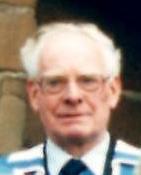
It is with great sadness that I have to report the passing of John Speake, Freeman of Shrewsbury and London, and former Archivist and Area Warden of FEW.
John was born in Birmingham and lived during his working life in Tamworth and Sutton Coldfield later moving to Shrewsbury for his retirement after research of his family history had revealed his entitlement to be sworn a Freeman of the town and subsequent visits having given John, and his wife Margaret, an affinity with the area.
John was a staunch defender of the Freedom, tirelessly researching records firstly in Shrewsbury Gild Archives and later as FEW Archivist to prepare and publish a great deal of invaluable information to advise and educate anyone with an interest in family history and the Freedom.
It was only a long period of ill-health that curtailed John’s active involvement with his Gild and FEW thus depriving us all of a wealth of knowledge and experience.
John’s funeral service was held at St Edithas Church in Tamworth, Staffordshire on 9th January 2015 where two Shrewsbury Freemen acted as pallbearers. Freemen of Chester, Newcastle-under-Lyme, London and Shrewsbury were in attendance and it is a mark of the esteem in which John was held that those attendees included seven Gild Past-Chairmen and Presidents, and two Past Presidents of FEW.
This tribute is reproduced from Journal 180, Spring 2015, and was submitted by Alan Fallows, Freeman of Shrewsbury and Immediate Past President FEW.
Newcastle upon Tyne, and indeed the nation, lost a great freeman when Robin Walker passed away on the 2nd November 1999. The outstanding commitment he gave to the preservation of the Freedom is a shining example to us all, as you see when you read the following synopsis of his very full life. We are most grateful to the late Peter S.D. Walker (his son) who provided this tribute at the time of his father’s death.
Robin Walker was born in Gosforth, Newcastle upon Tyne, on Saint Luke’s Day, 1912, just before the First World War. He was one of seven children and like most of those in his generation saw a massive change in world national and local outlooks and ideals. He was educated at Westminster School and Trinity College Cambridge. Admitted to the Freelage in 1932, hailing through the Newcastle upon Tyne Plumbers Company, he quickly got involved in freemen’s affairs and sometime later becoming Clerk of the Plumber’s Company. As a solicitor in the family firm he took over most of the freemen’s work from his father and grandfather. He was also admitted to the Newcastle Hostmen’s Company, and in due course passed through the offices of Clerk and Governour.
In 1939, at the outbreak of the war, he joined the RNVR as a Sub-Lieutenant. It was during one of his postings to Skegness that he met and married his first wife Phyllis. During the war he saw action off the coast of South Africa and later in the Arctic convoys to Russia. He was one of the lucky ones to return from PQ17, and for freemen in general this was just as well.
After his war service he returned to the family law firm and took up the reins of freemen’s affairs again. He acquired a detailed knowledge of the Newcastle Town Moor and its environs and had to apply his keen legal mind to the many problems encountered. In later years this was to prove an immense asset. It was not long before he was elected Secretary of the Newcastle upon Tyne Freemen’s Stewards’ Committee, subsequently to become their Chairman.
In 1966 the Late Harry Ward, ably guided by Robin, founded the then Freemen of England Association and became their first President. It is perhaps fitting that in the year of Robin’s demise, Alan Robson (who Robin introduced to the Association) should be elected to that office. Harry Ward’s book “Freemen in England” contains valuable contributions by Robin Walker – particularly on law relating to freemen.
The proposed Local Government Act of 1972 made no provision for the rights of freemen – a fact that was brought to the attention of the Freemen of England Association by Robin Walker at a memorable meeting in Alnwick Castle. Subsequent timely action (in which Robin was deeply committed) resulted in the famous Clause 248 being added to the 1972 Local Government Act.
Back in Newcastle upon Tyne there were other matters to consider, not least the Commons Registration Bill which had to be redrafted with the assistance of a Local MP before it became law. This ensured that the rights of the local freemen and their operations regarding the Town Moor were never again to be disrupted. It became clear that the ever increasing changes to the Town Moor and the rules laid down by the Charity Commission were fast becoming outdated. Again the legal mind went to work and again with careful guidance and assistance from a local MP the Town Moor Act 1988 eventually became law.
Over the years Robin had graduated from a Bachelor of Law to become a Doctor and finally a Master.
Robin was anxious that, where possible, local individual freemen companies did not die out. For example, Newcastle Scriveners Company had ceased to be active, but with Robin’s diligence and yet another Act of Parliament the Company was reborn and is now a strong and thriving Company.
Robin held many other offices connected and unconnected with the Freelage and was often consulted for his tremendous knowledge. For instance, back in 1922 Robin’s Grandfather (the then Chairman of the Newcastle Stewards’ Committee) had been prime mover in the forming of a unique Freemasonry Lodge in Newcastle upon Tyne called The Lodge of Free Burgesses – being primarily for freemen. Robin was himself a lifetime member of that Lodge from 1939. He was also a member of the Natural History Society of Northumberland and a Trustee of the Hancock Museum, a member of the Newcastle Antiquaries Society and the Lit. & Phil. Being a historian, Robin had an extensive knowledge not only of Newcastle upon Tyne and its history but also Northumberland. He formed strong links with Newcastle University, which still remain.
Life was not all work; Robin was a keen shot and wildfowler and hunted throughout his life with many different packs. In his later years he took up, fishing. He was also a keen sailor and a life member of the Royal Northumberland Yacht Club where he had a boat for many years. At School and University he was a good oarsman and rowed for the Tyne Rowing Club before the war.
He wrote two books about his city and its freemen:
Published in 1976, “The Origins of Newcastle upon Tyne” (ISBN 0 9504159 1)
Published in 1998, “The Institutions and History of the Freemen of Newcastle upon Tyne” (ISBN 0 9527338 0 3)
In 1982 his first wife died and he married his cousin Margaret, who survived him together with three sons by the first marriage, all of whom became freemen of the City of Newcastle upon Tyne.
Robin finally passed away peacefully on All Souls Day 1999, being denied a chance to see a new century.
This tribute was kindly forwarded by Alan Robson, Past President of FEW.
